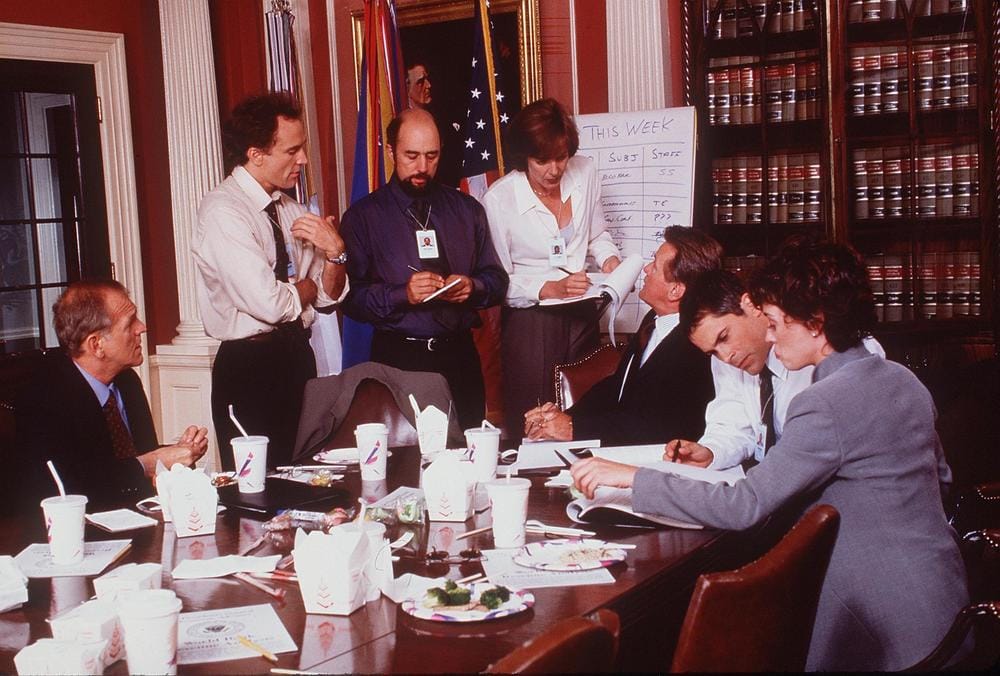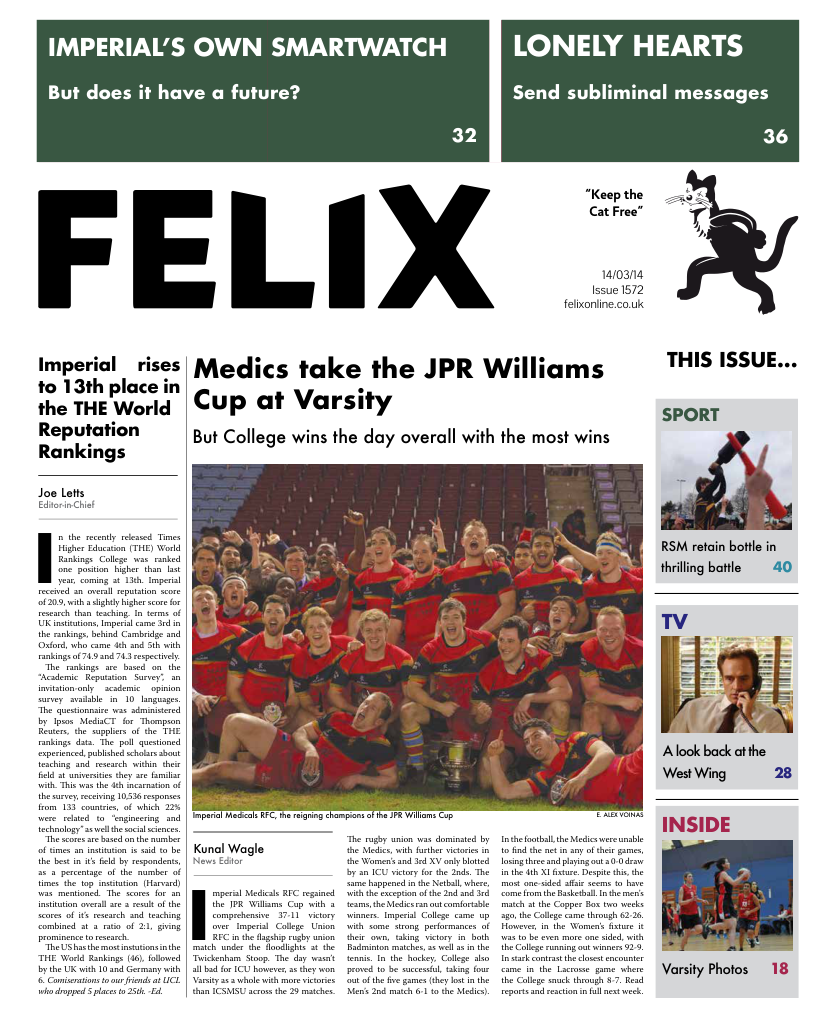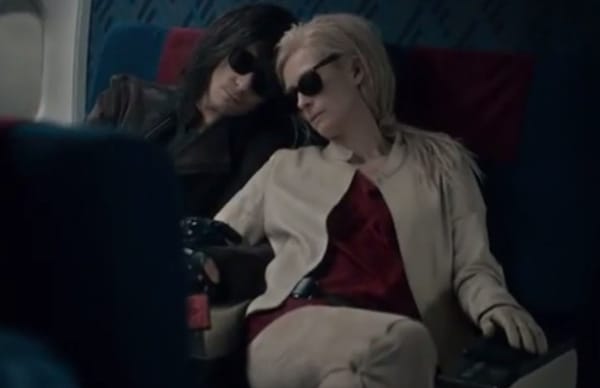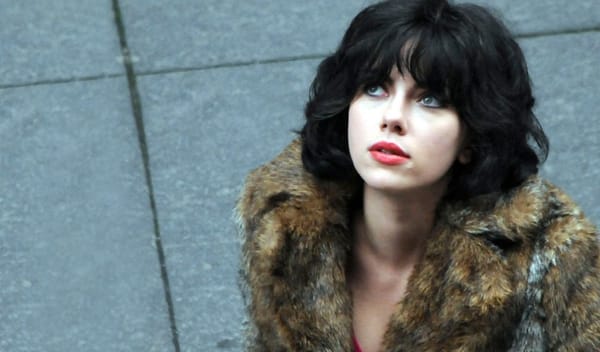The West Wing: A Retrospective
Emily Fulham takes a nostalgic look back at the Bartlet administration

The West Wing is widely acknowledged to be the best political drama ever shown on American television. The seven series were broadcast from 1999 to 2006, premiering the same year as Bill Clinton’s impeachment trial and finishing in the depths of George Bush’s second term, when the president had an approval rating of just 37%. Although the show never pretended to be an accurate representation of a president’s administration, the influences of real life are plain to see. It’s been said since the show ended that _The West Wing _was a portrayal of an idealised Clinton administration, and it’s true that there are easy parallels to draw between Clinton and Jed Bartlet, the fictional Democrat president in the show: both charismatic, highly intellectual, and plagued by scandal throughout their presidency.
One accusation often levelled at the show’s creator, Aaron Sorkin, was that _The West Wing _was too idealistic and failed to show the dirty reality of politics. Bartlet’s administration, and those closest to him, do have a strong sense of morality and seem remarkably unjaded from having worked in the White House for so long. And yet it’s refreshing to watch something that’s hopeful about politics for a change, that shows a President who’s struggling to do his best but trying to make the right decision. In the first series, the team is frustrated with the lack of things accomplished by the administration so far, due to a difficult and uncompromising opposition party and Bartlet’s fear of not getting re-elected. Midway through, in one of the best episodes of the show (Let Bartlet be Bartlet), these frustrations culminate in a great scene between the President and his Chief of Staff, Leo McGarry, and an inspirational speech that would give even the most cynical viewer some faith in politics.
On its inception, Sorkin never intended the President to have a large role in the show, preferring instead to focus on the staff surrounding him: his Chief of Staff, Communications Director and their deputies, and Press Secretary. However, Martin Sheen was pretty much perfect casting for the role of Jed Bartlet, making the character such an interesting one that it would have made no sense to relegate him to a secondary role. One of the major story arcs of the first few series is the discovery that the President suffers from MS, which he covered up during his election campaign. After the revelation is made public, he faces questions as to his competence for the job and an investigation into whether he defrauded the public. Clearly, the similarities between this and the Clinton-Lewinsky scandal are deliberate, and although they illustrate very different character flaws in their respective Presidents, it’s still an effective way to examine the relationship between politicians and the electorate they serve, and how open public figures should be about their private lives.
In addition to Sheen, the supporting cast is also outstanding. Seven of the cast won Emmys over the course of the show, several more than once. It also jumpstarted the career of Rob Lowe, who, as Deputy Chief of Staff, was a main character on the show until his departure during season four, and Dulé Hill, the President’s Aide, who went on to star in_ Psych_.
Much of the drama in The West Wing comes not from scandals, but the reality of policymaking and campaigning. One episode follows the attempt of an elderly senator to filibuster a bill, requiring him to stand up and talk without stopping for more than eight hours; another details the chaos that ensues after Josh Lyman, the Deputy Chief of Staff, is forced to stand in for the Press Secretary at a briefing. Lyman, unfamiliar with dealing with journalists, allows himself to be wound up to the point where he sarcastically tells a roomful of press that the President has a ‘secret plan to fight inflation,’ only to be taken at his word.
That’s not to say that The West Wing can’t tackle heavier material when it needs to. One scene which has become infamous even outside of the show’s legacy comes at the end of the first series, when Bartlet is trying to decide whether to run for reelection. After the loss of someone close to him, the President walks through a cathedral, venting his grief and anger to the God he’s always believed in. It’s a scene that demonstrates the full acting capabilities of Martin Sheen and which remains moving after many viewings. The show is also capable of handling a romantic subplot, featuring one of the longest will-they-won’t-they plotlines on TV.
Sorkin has made a name for himself by writing witty, fast-paced dialogue. Prior to The West Wing, he was most famous for writing A Few Good Men, and went on to write the Oscar-nominated screenplay for _The Social Network _(any doubts I had about the making of a film about Facebook were dispelled when I saw Sorkin’s name attached). He also pioneered the ‘walk-and-talk’ filming technique, where cameras follow the characters through the corridors of the White House. It’s a technique which has since been copied by many shows such as House, E.R. and _Law & Order _as a useful way of conveying a lot of exposition while retaining the audience’s interest.
After previously writing almost every episode, Sorkin left after the fourth season. The first four series are generally considered superior, but there’s very little decline in quality in the final three; the writing is still fantastic, and it gave the show a chance to explore different storylines.
Sixteen years on, it’s easy to dismiss The West Wing as standard American feel-good fare, particularly at a time when disillusionment with politics seems to be the default. There are moments where the show can be a little too pompous and a little too idealistic; it’s difficult to muster a swell of patriotic pride every time a character gives an inspirational speech, particularly when it’s not even your own country they’re talking about. It’s a testament to Sorkin’s writing that these speeches, which are pretty frequent, very rarely become tedious. For the most part, the show is just hugely entertaining, and also educational, especially for non-Americans: I now know enough about the American political system to bullshit my way through most conversations about US politics, which turns out to be surprisingly useful.
There are very few reasons not to watch The West Wing; it’s got a fantastic cast and some of the best writing in a TV drama. Unfortunately, it’s not available on Netflix UK (although it is available on the US version), but you can pick up the series boxsets for pretty cheap online these days. Even if it doesn’t inspire any great faith in politics, it might just shake some of the cynicism out of even the most hardened skeptics. And if not, well, there’s always_ The Thick of It_.







